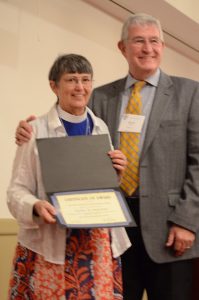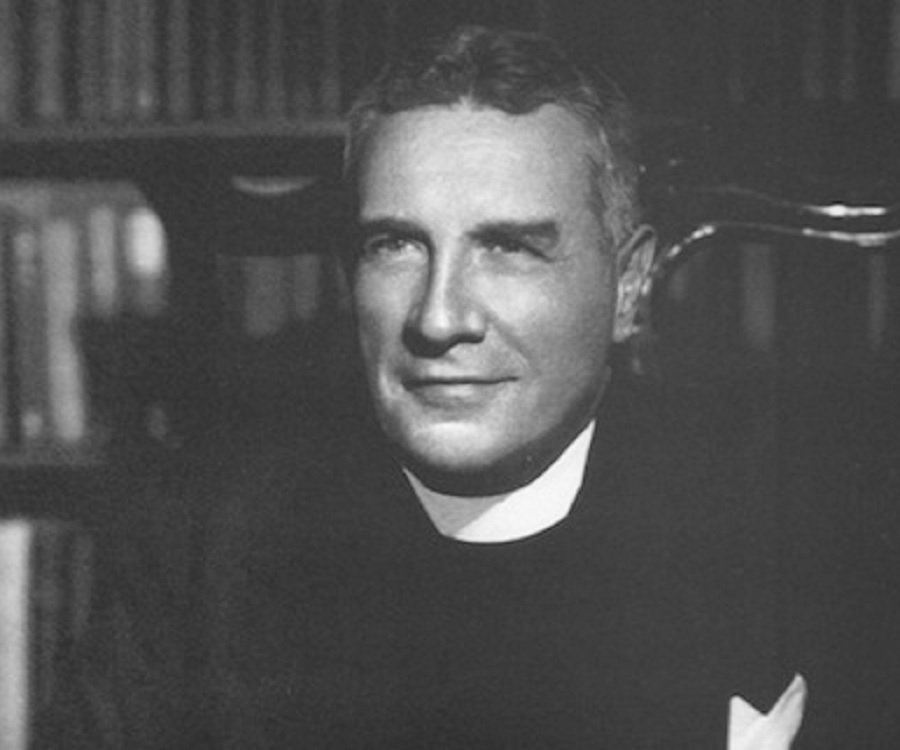By Karyn Zweifel
“The fourth thing the Church needs to learn from AA is the necessity for a real change of heart, a true conversion. As we come Sunday after Sunday, year after year, we are supposed to be in a process of transformation. Are we? The AA’s are. At each meeting there are people seeking and in conscious need. Everybody pulling for the people who speak, and looking for more insight and help. They are pushed by their need. They are pulled by the inspiration of others who are growing. They are a society of the ‘before and after’ with a clear line between the old life and the new. This is not the difference between sinfulness and perfection, it is the difference between accepted wrong-doing and the genuine beginning of a new way of life.” From a Recovery Ministries pamphlet, What the Church has to Learn from Alcoholics Anonymous, the text of a powerful keynote address Samuel Shoemaker delivered during AA’s 20th anniversary convention in 1955.
January 31st is set aside to commemorate the Reverend Samuel Shoemaker (1893-1963), considered one of the best preachers of his era and the longtime rector of Calvary Episcopal Church in New York City. He had a profound influence in the founding of Alcoholics Anonymous and on the many 12-step recovery groups that followed. Shoemaker attended Oxford Group meetings with Bill Wilson, author of the book Alcoholics Anonymous and founder of AA. Wilson later wrote that Sam Shoemaker “passed on the spiritual keys by which we were liberated. The early AA got its ideas… straight from the Oxford Group and directly from Sam Shoemaker, their former leader in America, and from nowhere else.”
Recovery Ministries of the Episcopal Church (RMEC) makes an occasional award to celebrate Shoemaker and honor those who work for spiritual healing in recovery. The Reverend Deacon Lisa Kirby is president of RMEC. “As I travel around the country, as soon as I say the words ‘Episcopal Recovery,’ the response I hear is ‘Do you know Stuart Hoke?’ Stuart is traveling all over the country ministering to those who need to hear the good news of recovery for all God’s children. I delight in Stuart’s wisdom and humor and can think of no more worthy person to receive this year’s Sam Shoemaker Award.”

“I consider addiction to be one of the most significant pastoral issues facing the Church.” The Reverend Doctor Stuart Hoke accepted the Samuel Shoemaker Award at The Gathering 2016, RMEC’s annual meeting held last November at Bruton Parish Church in Williamsburg, VA. “I’m thrilled to be associated with Sam Shoemaker because of our common vocation and his early support of the fledgling twelve steppers.”
For the past twelve years, Hoke has drawn on his own experience to pioneer in the teaching of two recovery-related courses at The General Theological Seminary. “One is the history and practice of twelve-step spirituality and the other is the Church’s role in recovery from alcoholism and addictive illness. I encourage my students to visit Calvary Church to see Sam Shoemaker’s office and the rooms where the principles of AA began to be articulated, along with the beautiful stained glass windows given in memory of some of the pioneers of the movement.”
The Very Reverend Ward B. Ewing, D.D. was dean of The General Theological Seminary when those classes were introduced. “When we began the course, General was the only seminary in the Association of Theological Schools to have a course on addiction,” he said. “The class has always received the highest evaluation from the students who recognize the importance of understanding addiction in their pastoral ministries. Today I know of only three seminaries offering a similar course.”
Hoke became affiliated with RMEC in the early nineties. “After serving three years on the board, I was asked to serve again in 2010. I was excited to see the revitalized work this group was doing,” he said in a recent telephone interview. But his contributions to the field of recovery began many years before. “Bridging the gap between the church and recovery has been my crusade since 1987,” he continued. “In both Amarillo and Houston I led Sunday School classes called ‘Spiritual Awakenings.’ The goal of these classes was to illustrate the strong connection between the tenets of Christianity and the principles of twelve-step spirituality.
“I have been personally involved in recovery for the past thirty years.” For Hoke, this involvement has been redemptive. “This is it. I have received an outpouring of grace, a connection with a fellowship of recovering people, and an opportunity to become the priest that I was called to be in the first place.”
Born in Memphis, Tennessee, and raised across the river in northeast Arkansas, Hoke graduated from Southern Methodist University in Dallas before attending the Episcopal Divinity School in Cambridge, Massachusetts, where he received the Master of Divinity degree. He recently completed a term as President of the seminary’s Alumni/ae Executive Committee.
Ordained in 1972, Hoke spent the greater part of his ministry serving congregations in Arkansas and Texas. In 1996, he completed the Master of Sacred Theology degree at New York’s General Theological Seminary, and was awarded the Doctor of Theology degree in the spring of 2000. He served as Executive Assistant to the Rector of Trinity Wall Street from 2000-2008, and also as Missioner to St. Paul’s Chapel at Ground Zero following the terrorist attacks on the World Trade Center in September 2001.
Since moving to North Carolina in 2008, Hoke has worked as a supply priest throughout the Dioceses of North Carolina and South Carolina, and currently serves as the part-time Vicar at All Saints’ Episcopal Church in Hamlet, North Carolina. Committed to “spreading the Word,” he is a frequent guest preacher and conference and retreat leader. He is the father of two sons—one nearby in Raleigh, and the other in Salt Lake City, Utah.
“Stuart has educated a generation of clergy to recognize and respond appropriately to the cunning, baffling, and powerful diseases of addiction. In addition he has offered his services for training events in dioceses throughout our church. His work has a significant impact for the health and vitality of our church,” said Ewing, now retired from GTS and currently serving as Non-alcoholic Trustee of the General Service Board of Alcoholics Anonymous and past Chair of the Board. “I cannot imagine a more appropriate recipient for this award.”
The Recovery Ministries of the Episcopal Church was originally known as the National Episcopal Coalition on Alcohol and Drug Abuse. RMEC is now a separate 501(c)(3) organization of clergy and laity, led by an all-volunteer board. It has been instrumental in bringing the issues of addiction and recovery to the attention of the General Convention, most recently the 2015 resolutions regarding alcohol use and abuse in church settings. Their website is http://www.episcopalrecovery.org. Previous honorees receiving the Samuel Shoemaker Award include Betty Ford, The Rev. David Works, The Rt. Rev. David Richards, and Pia Mellody, all major contributors to the spiritual healing of addictions.

